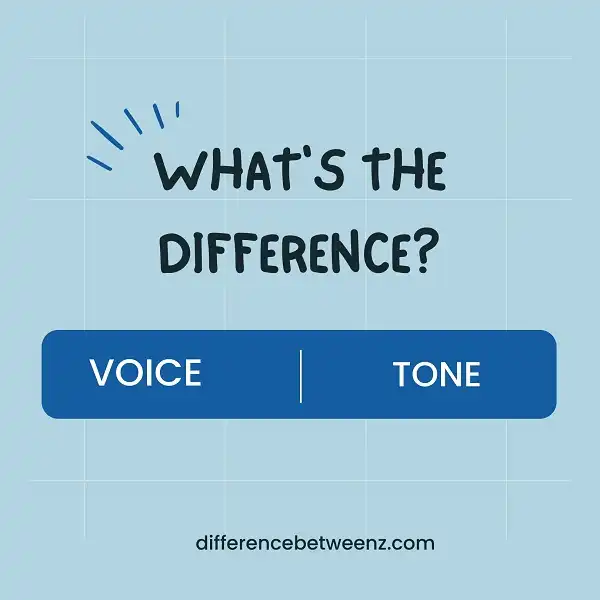There is a lot of confusion between voice and tone when writing. Many people believe they are one and the same, but they are actually two different concepts. The tone is how you want your reader to feel after reading your work, while voice is the personality that comes through your writing. Your tone can be set by using certain words or expressions, but it’s also affected by how you structure your sentences and paragraphs. In order to find your tone, you need to think about what you want to accomplish with your writing. Is it to inform, entertain, or persuade? Once you know that, you can start thinking about the best way to convey your message.
What is Voice?
Voice is an important element of writing, but it can be difficult to define. Voice can be referred to as the writer’s attitude towards his subject, and it can be seen as a combination of both style and tone. Voice allows writers to communicate their personality and their unique perspective on the world. It is what makes a piece of writing distinctive and recognizable. Voice is often one of the first things that readers notice about a piece of writing, and it can be a major factor in whether or not they enjoy reading it. While Voice is difficult to define, there are a few traits that are often associated with strong voices in writing. These include confidence, clarity, and creativity. Voice is an important part of writing because it allows writers to connect with their audience and create a lasting impression.
What is Tone?
The tone is the reflection of the writer’s mood while writing. The tone could be serious, happy, funny, etc. Tone can also be used to make the writing more persuasive. The use of tone in writing can help to capture the reader’s attention and make the argument more convincing. When choosing a tone for your writing, it is important to consider the audience and the purpose of the piece. For example, a letter to a friend would likely have a different tone than a business proposal. In general, it is best to err on the side of caution and choose a tone that is appropriate for the situation.
Difference between Voice and Tone
- There is often confusion between the terms “voice” and “tone” when referring to writing. Though distinct, these two important elements of writing are closely related, as both influence and reflect the mood of a writer.
- At its most basic level, voice refers to the individual style and perspective of a writer. It is influenced by factors such as word choice, syntax, and punctuation, as well as more subtle features such as humor or level of formality. In contrast, tone can be thought of as the overall feeling or attitude that a piece of writing evokes in its audience. The tone is typically set through a combination of various linguistic elements, including but not limited to word choice and sentence structure.
- Given this distinction between voice and tone, it is clear that one cannot exist without the other. A writer’s voice provides much of the underlying tone in their writing, while changes in tone can influence how their voice is perceived by readers. Ultimately, finding a balance between these two elements is essential for crafting effective writing that effectively conveys meaning to readers.
Conclusion
Voice and tone are two important aspects of writing that should be considered when crafting any type of document, from a formal business proposal to a casual email. In order to create the desired effect, it’s important to understand the difference between voice and tone and how they can be used together to convey your message. The voice is the author’s personality or point of view, while the tone is the attitude conveyed in the words themselves. By understanding these concepts and using them intentionally in your writing, you can craft content that is clear, concise, and engaging for your audience.


